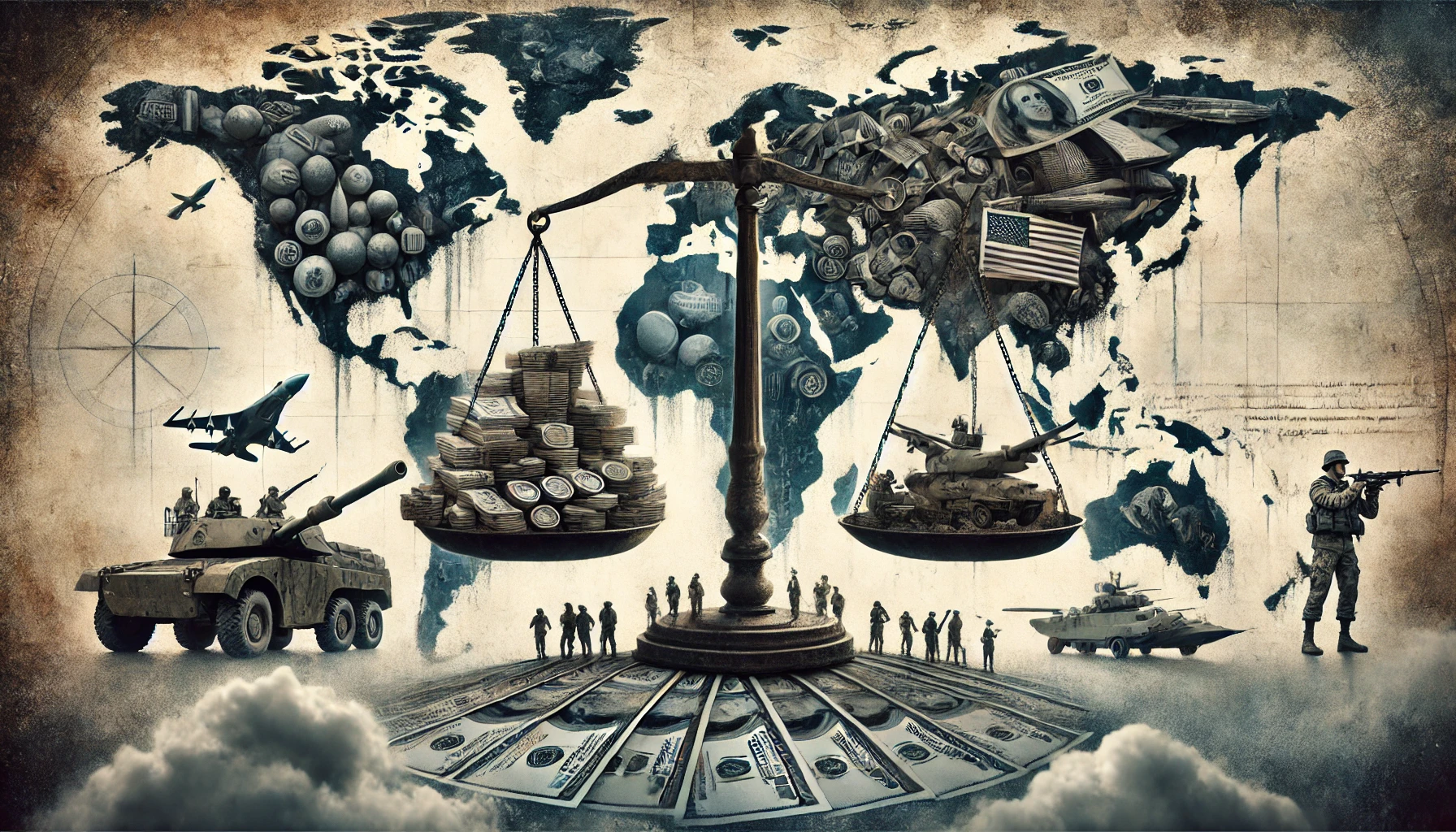The Cost of Debt vs. Defense

No major world power can spend more on interest payments than on its military and remain a great power for over the long term.

This statement reflects a widely held economic and strategic perspective: if a major world power spends more on servicing debt interest than on funding its military, it risks undermining its long-term global influence and security. Here's why this is considered unsustainable:
1. Military Readiness and Global Influence: For a nation to project power and influence on the world stage, it must maintain a strong, well-funded military. Military spending often covers essential capabilities like defense technology, personnel training, and intelligence operations. When debt obligations surpass military funding, resources are diverted away from these critical areas, potentially weakening the nation’s ability to defend itself, support allies, and deter adversaries.
2. Economic Strain and Fiscal Limitations: High interest payments indicate a substantial level of national debt. As debt accumulates, more of a country’s budget goes toward paying off this interest rather than being reinvested in growth sectors like education, infrastructure, and innovation. This can lead to economic stagnation, inflation, and limited capacity for new spending, making it harder for the nation to stay competitive globally.
3. Risk of Dependence on Foreign Creditors: When a country becomes heavily indebted, it often relies on foreign investors or governments to finance its debt, creating vulnerabilities. If these creditors withdraw their support, the indebted country may face a funding crisis, forcing it to reduce essential services or further cut military spending.
4. Long-Term Decline in Global Standing: Ultimately, sustained excessive debt payments can limit a country’s ability to innovate and respond to emerging challenges. As debt consumes more resources, the country may find itself less able to lead in international diplomacy, technological advancement, and global development efforts. This erodes its standing as a "great power" over time, potentially leaving a void that other, more financially stable nations may fill.
In sum, a world power that prioritizes debt payments over military and strategic investments faces limitations in maintaining its global influence and securing its long-term prosperity. To remain competitive, a balance must be struck between fiscal responsibility and necessary investments in military and economic development.